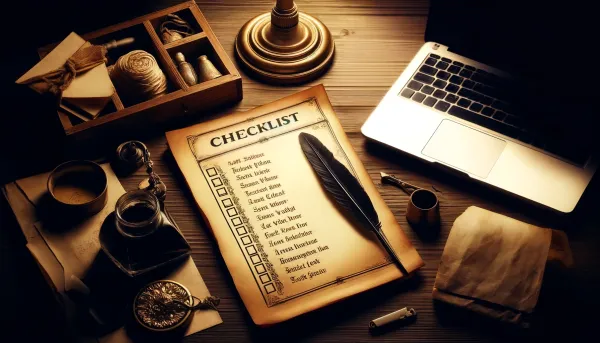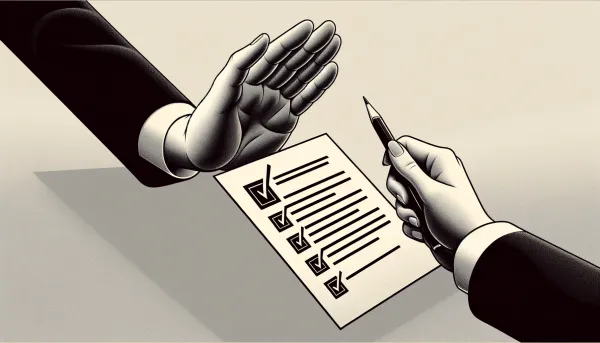Pilots did not invent checklists in 1935. When did they appear?
The entire visible Internet unanimously declares that the checklists appeared after the crash of the “Model 299” military aircraft. This article shows that this is completely wrong, and the history of checklists is much more interesting.
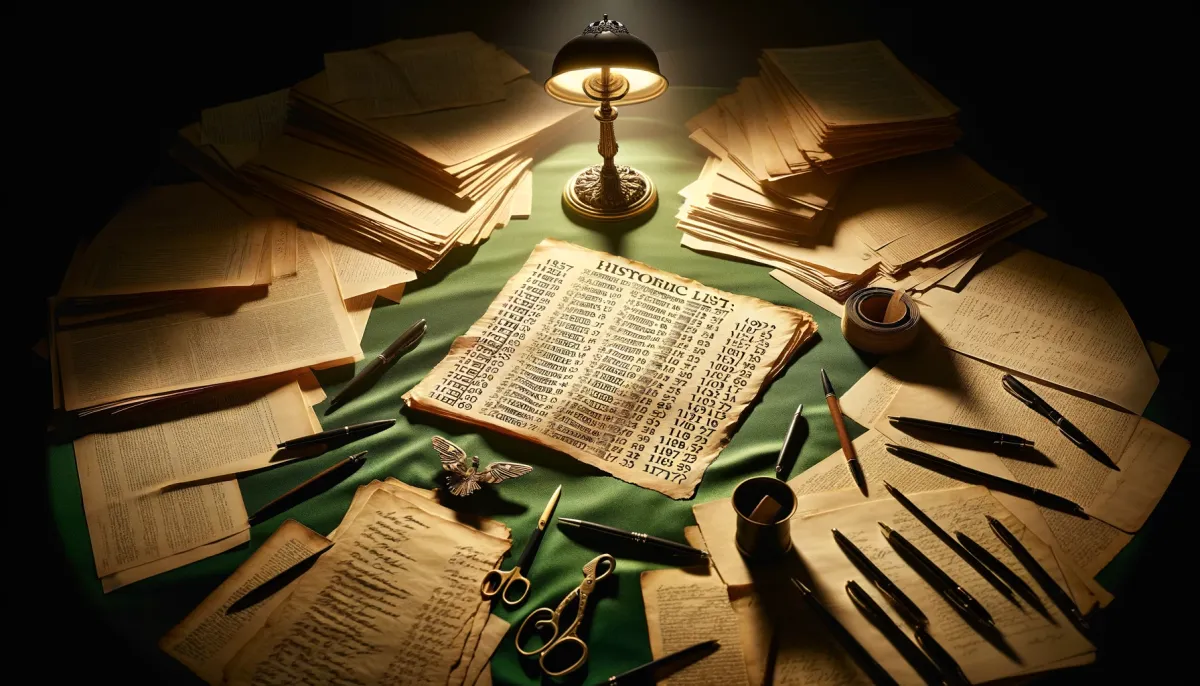
If you enter the query “history of checklists” [1] in the search, you can meet with amazing unanimity. The first few materials [2][3], tell about a competition between aircraft manufacturers that took place on October 30, 1935, at the Dayton–Wright Brothers Airport in Dayton, Ohio. During this competition, Boeing introduced “Model 299”, which then became known under the name “B-17” or “Flying Fortress”. Flight tests ended in disaster, the prototype 299 crashed, killing two of the five crew members, including a well-experienced pilot. Everything was fine, but the control of the aircraft turned out to be too difficult even for a professional pilot with lots of experience [4].
At this point, it was easy to start treating the plane as unsuccessful. However, its characteristics made it quite attractive, so the model received a second chance. The U.S. Air Force ordered 13 planes for “further testing” and emphasized that there was no more opportunity to make mistakes.
The pilots wondered how to make sure that everything was done and nothing was missed during takeoff. By the end of 1937, they came to the conclusion that the solution to the problem would be a checklist [5]. Subsequent events show that this was the right decision.
If we count from 1937, it turns out that, presently, the checklists are only 87 years old. The first device that is considered to be a computer, the Z3 machine [6], is 84 years old. The idea is new, it turns out! So let's love checklists as much as we love computers!
I first got acquainted with the history of the “B-17” aircraft in Atul Gawande's book “The Checklist Manifesto”. The story about the plane ends with the phrase:
Instead, they came up with an ingeniously simple approach: they created a pilot’s checklist.
Nothing here says that checklists appeared as the phenomenon at that very moment. The next chapter mentions this story once again. About the events of 2003, the author writes the following:
Four generations after the first aviation checklists went into use…
However, people do think that checklists were invented in 1937, so let’s dispel this common fallacy.
Why am I so sure that checklists are much older? There are several sources confirming its earlier origin. Let's start with the most obvious one – the dictionary.
Since the “checklist” is clearly an English word, then let’s search through the Oxford English Dictionary.
The earliest occurrence of the word “checklist”, documented by the compilers of the dictionary, was in 1853 [7]. The Oxford Dictionary does not show the source of this word, although it may know it. But paying £56 to test this hypothesis seemed superfluous to me. I decided to seek for information in other sources.
The Online Etymology Dictionary service indicates 1849 as the year of the earliest known use of the “checklist” word [8]. There is another service that can give a hint and even show the contents of the source: Google Ngram Viewer, let's go there.
Google Ngram Viewer has graphs showing the frequency of usage of words in texts over the years. Its data is inaccurate, but could be used as a starting point. The review of references [9] shows that from 1632 to 1638, humanity abruptly began writing 9 “checklist” words per million written words every year. Then in 1639, people of the world became satisfied and forgot “checklist” for the next 60 years.
Is it be possible to believe this information? Unfortunately, no, these are noises in data. Some books in the Google Books service have publication years incorrectly set, so 1633 surfaced in the search. I decided to manually look through the materials discovered by Google Books.
Do you remember the book “Robinson Crusoe” and its author, the English writer Daniel Defoe? In his work “Conjugal Lewdness: Or, Matrimonial Whoredom” written in 1727, I found the word “checklist” [10]. No, the renowned author does not give a list of recommendations on the topic. This word is written by someone in pencil on the cover of the reissue, what a shame!
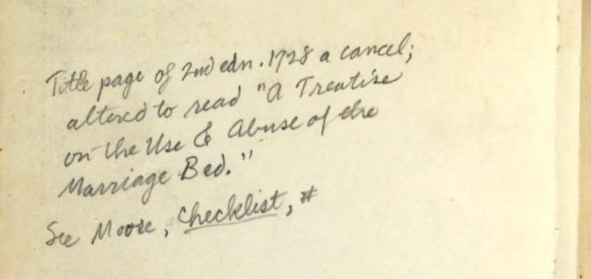
This turned out to be the misleading source of checklists, nothing is left to do but to look further. It is still more than 100 years before the first mention of the cherished word.
In 1849, there was indeed a document with the word “checklist”. Its name is: “An Act to Establish the City of Portsmouth” [11], that is, this document establishes the foundation of the city of Portsmouth in New Hampshire, USA. The desired word is used three times in it: once in the form of a “checklist” and twice in the form of a “check-list”. The first sentence containing it looks like this:
Provided, however, that the checklist shall be used at all such ballottings.
The sentence refers to an annual meeting of residents to hold local elections.

One could be satisfied with this find and age the checklist by 88 years. But my excitement had already played out, and I went to dig into another place I love – the Internet Archive. This wonderful service not only stores “snapshots” of various websites at a certain time, but also is an astonishing online library. There you can search for information in the texts of the books.
The search in the books of the Internet Archive was as “noisy” as in Google Books. So I was twice as happy to discover another result behind all this noise. And this is the “Journal of the House of Representatives, of the State of New Hampshire, at Their Session Holden at the Capitol in Concord”. The journal was published in 1841, it describes the events of the autumn of 1840. Its tattered cover, in the best traditions of films about treasure hunters, served me as a good reward, and I decided to stop further search.
At the end of this journal, there is a sentence in the appendix contained in the report of the committee on elections [12]:
Selectmen of said town refused to put their names upon the check-list, as they were bound by law to do.
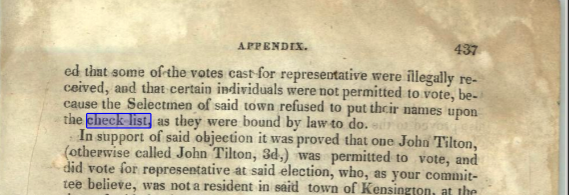
Based on the two materials found, the following observations can be made:
- The first evidence of the word check-list was found in the state of New Hampshire.
- The first checklists were related to the elections.
- The checklist has aged significantly. Now he is not 87 years old, but 183.
- We managed to question the existing etymology knowledge of the respected sources.
I enjoy the achieved results. I am not sure that the evidence found is indeed the earliest one, but I am excited to see the investigations of the interested readers. Thank you for reading this blog post!
List of links:
[1] history of checklists from DuckDuckGo
[2] A Brief History of Checklists from Wiley
[3] Checklists: A Review of Their Origins, Benefits, and Current Uses as a Cognitive Aid in Medicine from SageJournals
[4] Atul Gawande “The Checklist Manifesto: How to Get Things Right”, ISBN 978-0312430009
[5] How the Pilot's Checklist Came About, archived version from FAA
[6] Z3 from Wikipedia
[7] Сhecklist from Oxford English Dictionary
[8] Check-list from Online Etymology Dictionary
[9] Checklist mentions in books from 1500 to 1700 from Google Ngram Viewer
[10] “Checklist” mention in Daniel Defoe’s “Conjugal Lewdness: Or, Matrimonial Whoredom” from Google Books
[11] “checklist” mention in “An Act to Establish the City of Portsmouth as Amended by the Legislature and Passed July 6, 1849” from Google Books
[12] “check-list” mention from “Journal Of The House Of Representatives Of The State Of New Hampshire At Their November Session” from the Internet Archive

